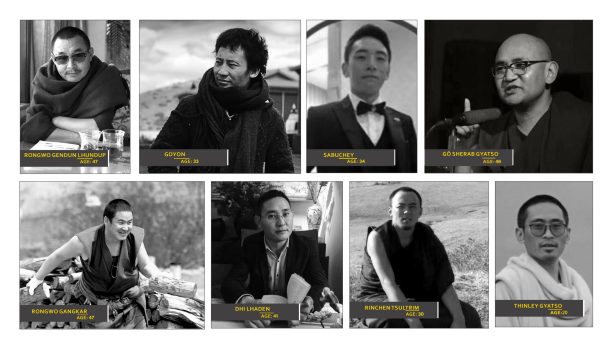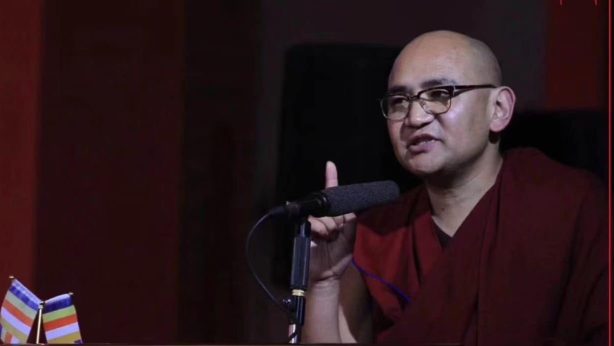China must provide evidence of Tibetan philanthropist Bangri Rinpoche’s release from life imprisonment
Bangri Tsamtrul Rinpoche, a reincarnated lama and founder of the Gyatso orphanage home, was due for release on 31 July this year after serving close to 22 years of life imprisonment in Chushur (Ch: Qushui) County Prison near Lhasa.
There has been no confirmation from Chinese authorities about Bangri Rinpoche’s release, raising concerns over his current status and health condition. At least since 2005 when he was found to be suffering from heart disease and gallstones, Chinese authorities have withheld any information about Rinpoche’s condition.
Given his poor health condition and the extreme secrecy with which Chinese authorities dealt with his case for more than two decades, TCHRD has legitimate fears for his safety and wellbeing.
TCHRD calls upon Chinese authorities to issue a public confirmation with verifiable evidence that Bangri Rinpoche has been released with sound physical and psychological health conditions. Chinese authorities must guarantee that Rinpoche is provided with necessary medical care without delay and that his supplementary sentence of “deprivation of political rights” for life is not used as a pretext to impose further restrictions on his human rights.
Trumped-up charges
Rinpoche had been detained on 27 August 1999 along with his wife Nyima Choedon for their alleged role in plotting with a building contractor Tashi Tsering’s attempt to blow himself at Lhasa Plaza after the 6th National Minority Games.
Following a closed-door trial, the Lhasa Municipality Intermediate People’s Court had convicted Rinpoche and Choedon of ‘splittism’ on 26 September 2000. Rinpoche was sentenced to life in prison and ‘deprived of political rights’ for life while Choedon was sentenced for ten years and ‘deprived of political rights’ for five years.
Both were shifted to Drapchi Prison and kept in solitary confinement for a year. A Chinese government propaganda video about the prison featured prominent footage on Rinpoche and Choedon [00:30:20-00:32:10]
On 31 July 2003, Rinpoche’s life sentence was commuted to fixed-term imprisonment of 19 years. In the summer of 2005, he was moved to Chushur, and the same year in November, his sentence was further reduced by one year making him eligible for release in July 2021.
According to Article 80 of the Chinese Criminal Law, “the term of fixed-term imprisonment that is reduced from life imprisonment is counted as commencing on the date of the order reducing the sentence”.
Rinpoche was one of the three detainees the then UN Special Rapporteur on Torture Dr. Manfred Novak interviewed on his visit to the Tibet Autonomous Region from 25 November 2005 to 2 December 2006.
In his report following the visit, the Special Rapporteur had noted that torture remains “widespread” contributing to “a palpable level of fear and self-censorship, which he had not experienced in the course of his previous missions”.
Quoting Bangri Rinpoche, the report stated that he was kept in a contorted position and subjected to rigorous interrogation lasting five days and nights.
The Special Rapporteur also visited Nyima Choedon who was released in February 2006 after her sentence was reduced twice.
Background
Bangri Tsamtrul Rinpoche (also known as Jigme Tenzin Nyima) was born in Nangchen (Ch: Nangqian) County, Kyegudo (Ch: Yushu) Tibetan Autonomous Prefecture, Qinghai Province, in the Tibetan province of Kham. Jigme Tenzin Nyima was recognised as the incarnation of Bangri Rinpoche of Nangchen Bangri Monastery which is in the Nyangpo region of Kongpo in Kongpo Gyamda County, Nyingtri (Ch: Nyingchi) Prefecture, TAR. It was the seat of Terton Jatson Nyingpo, a Nyingmapa Guru of the 5th Dalai Lama.
Rinpoche was very concerned about children especially orphans who could not receive an education. His concern and generosity led him to establish a school for orphans through his own expenses and generous donations. The orphanage founded in Gyatso Township near the Norbulingka Palace was named the Gyatso orphanage. In May 1996, forty orphans from various parts of Tibet were admitted into the orphanage. Rinpoche took the overall responsibility while his wife Choedon assisted him in administration works. The orphans were given education in the Tibetan language, Chinese language, English language, and mathematics. After their arrest in August 1999, the orphanage was declared illegal and closed in October the same year.


